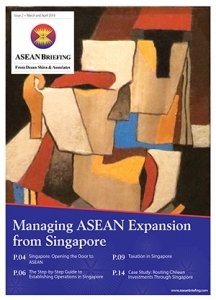China
 Up in Smoke: Why China has Banned Foreign Investment in the Tobacco Industry
Up in Smoke: Why China has Banned Foreign Investment in the Tobacco Industry
China’s Ministry of Industry and Information Technology (MIIT) recently announced regulations barring foreign investment in the country’s enormous tobacco industry, blocking foreign invested enterprises and individual businesses from participating in tobacco wholesale, retail, and alternative forms of trading. These new restrictions come on the heels of various government efforts to reduce China’s rampant tobacco use, with middling results to date.
There are over 320 million smokers in China, making it the world’s largest producer and consumer of tobacco products. While the Middle Kingdom comprises about 20 percent of the world’s population, it is responsible for 45 percent of all cigarettes consumed globally. With an ageing population, a shrinking work force, and an increasingly prosperous society with higher quality of life demands, China faces mounting pressure to look after its people’s well-being – which comes at a significant price.
China’s Work-related Injury Insurance Scheme – Empowering Employees and Employers Alike
Clarifying what constitutes a work-related injury has always been a difficult task for both employees and employers to claim legal rights. In China, problems usually arise from the time and location at which incidents occur, and to what extent they are related to work tasks, making legal processes rather complex for foreign employers and insurance agencies.
Occupational injuries and diseases, post-work death, and industrial accidents have generated the most number of law disputes regarding work-related injuries. Since much-publicized cases of Karoshi (death from overwork) at Dell in 2005 and at PwC in 2011, foreign organizations operating in China have been questioned on their abilities to protect employees from overwhelming workloads and to maintain sustainable development, an increasingly hot topic as China expands opportunities for foreign-invested enterprises to operate in the country.
In this article, we brief China’s regulation on work-related injury insurance with a comprehensive guide on conditions for qualification, benefit items, and suggestions for foreign organizations in China to minimize the risk of work-related injuries and law disputes.
India
The United Kingdom Chooses ‘Brexit’, Will it Hurt India?
The U.K.’s decision to withdraw from the European Union (EU) on June 23 caused heavy turmoil for financial markets worldwide and a currency freefall for the Pound Sterling. It also opened up a period of great uncertainty for those doing business with the UK and Europe. While global markets have since bounced back from the immediate panic reaction, questions linger about the exact impact Brexit will have on global investors and respective economies, including India.
India Institutes More FDI Changes, Opening Most Sectors to Automatic Route
The Indian Government announced further liberalization of the foreign direct investment (FDI) regime, hoping to increase employment. The changes are the second round of reforms after significant modifications to the regime in November 2015.
The reforms make FDI in most sectors available under the automatic approval route and continue the path to fully opening all sectors to foreign direct investment. Since 2014, India has made FDI reforms in defense, construction, single brand retail, manufacturing, aviation, communications, select agricultural segments, and the financial sector. The new amendments in FDI policy include increases in sectoral caps, bringing more activities under the automatic approval route, and easing the conditions for foreign investment.
Vietnam
Expat Employment in Vietnam: The Comprehensive Guide to Work Visas and Work Permits
In recent years, the number of expats coming to Vietnam has steadily increased. The majority of foreign workers that come to Vietnam are employees of foreign contractors, working for, or establishing foreign direct investment (FDI) projects.
When hiring foreign staff in Vietnam, there are a number of procedures and legal frameworks that must be understood. In this article, we discuss the documents necessary for a foreign worker in Vietnam, including:
- Visas;
- Work Permits;
- Temporary Residence Cards.
Malaysia
Malaysian Tax Stoppages: Understanding Liability and Maximizing Mobility
With the passing of Ruling No. 12/2015, it is time for Malaysian residents to double check their taxes. Section 104 of the Income Tax Act of 1967 had established that individuals with outstanding tax dues would be forbidden from leaving the country until the debt was settled, but this law was never enforced—until last year. Since a large portion of the government’s revenue is generated from taxes, the Inland Revenue Board of Malaysia (LHDN) has decided to partner with the Immigration Department to collect unpaid taxes. As a result, since 2015, over 100,000 Malaysian taxpayers have been forbidden from leaving the country, sometimes unaware that they had outstanding liabilities. This article discusses how this new ruling may affect your company and how to ensure tax compliance.
ASEAN
Successfully Resolving Commercial Disputes: An Overview of Arbitration in ASEAN
International arbitration centers have become the preferred location for the resolution of corporate disputes in ASEAN. The use of these centers is preferred due to their affordability, speed, privacy, and neutrality. As investors ramp up investment in ASEAN or enter the region for the first time, understanding where international arbitration is available and how to access it can provide significant protection from regulatory uncertainty.
In recent years there has been substantial economic growth and development among emerging markets within the ASEAN region. Within most jurisdictions, the increase in development, along with transnational transactions creates a high chance that commercial disputes will increase, in terms of both quantity and complexity. Any foreign investor thinking about investing in the ASEAN region should therefore carefully think about what options are open to them if commercial disputes do occur.
|
Asia Briefing Ltd. is a subsidiary of Dezan Shira & Associates. Dezan Shira is a specialist foreign direct investment practice, providing corporate establishment, business advisory, tax advisory and compliance, accounting, payroll, due diligence and financial review services to multinationals investing in China, Hong Kong, India, Vietnam, Singapore and the rest of ASEAN. For further information, please email asia@dezshira.com or visit www.dezshira.com. Stay up to date with the latest business and investment trends in Asia by subscribing to our complimentary update service featuring news, commentary and regulatory insight. |
![]()
 The Asia Sourcing Guide 2015
The Asia Sourcing Guide 2015
In this issue of Asia Briefing, we explain how and why the Asian sourcing market is changing, compare wage overheads, and look at where certain types of products are being manufactured and exported. We discuss the impact of ASEAN’s FTAs with China and India, and highlight the options available for establishing a sourcing model in three locations: Vietnam, China, and India. Finally, we examine quality control in each of these markets.
 Managing ASEAN Expansion from Singapore
Managing ASEAN Expansion from Singapore
For the second issue of our ASEAN Briefing Magazine, we look at the benefits of using Singapore a hub for the management of regional operations throughout ASEAN. We firstly focus on the position of Singapore relative to its competitors, such as the Netherlands and Hong Kong. We then provide step-by-step instructions on corporate establishment, and provide expert insight on maximizing returns through the reduction respective tax burdens.
The 2015 Asia Tax Comparator
In this issue, we compare and contrast the most relevant tax laws applicable for businesses with a presence in Asia. We analyze the different tax rates of 13 jurisdictions in the region, including India, China, Hong Kong, and the 10 member states of ASEAN. We also take a look at some of the most important compliance issues that businesses should be aware of, and conclude by discussing some of the most important tax and finance concerns companies will face when entering Asia.


